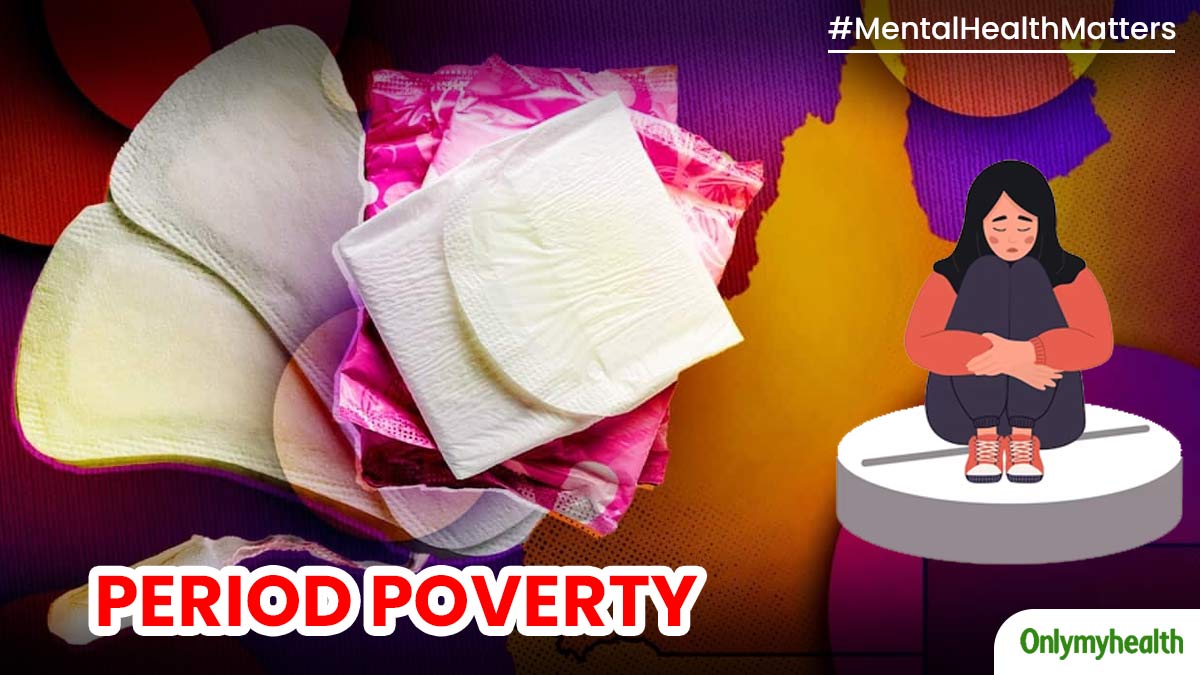
While many women have the option of using menstrual cups, tampons, or sanitary pads, others may not have the resources or the luxury of doing so.
In a society battling with many forms of poverty and inequality, there is a lesser-known issue that silently affects the lives of countless women worldwide; the period poverty. It not only creates physical obstacles but also has a significant impact on the mental health. The psychological impact of this issue is frequently underestimated, despite its importance in understanding the greater consequences of gender disparity and the urgent need for change.
Table of Content:-
What Is Period Poverty
Dr Bhagya Lakshmi S, Consultant Obstetrician, Gynaecologist and Laparoscopic Surgeon, Yashoda Hospitals, Hyderabad, said, "Period poverty refers to the lack of access to menstrual products, adequate sanitation facilities, and menstrual education. It is a widespread issue affecting many individuals, particularly in low-income communities and developing countries."
Dr Sangeeta Raodeo, Consultant, Gynaecology and Obstetrics, Fortis Hospital, Mulund, said, “Period Poverty has a serious impact on both physical and mental health, especially on teenage girls.” She added that access to menstrual products is essential to maintain the overall health. It can impact participation in school, sports, and social activities. Not only this, girls even find themselves embarrassed and humiliated to talk to parents or friends, leaving them with a sense of shame and isolation.
Also Read: PeriodEducationForAll: Common Menstrual Myths Debunked By Dr Anjali Kumar
How Does It Impact Mental Health
Kushneet Sachdev, Counselling Psychologist, Lissun, said that the lack of menstrual products or awareness can have notified impacts on mental health. Some of them are as follows:
Anxiety and Stress
The inability to access menstrual products can lead to stress and anxiety. Fear of leakage or embarrassment during menstruation can cause emotional distress, affecting one's overall well-being.

Shame and Stigma
In societies where menstruation is considered as taboo, the lack of awareness or access to menstrual products can contribute to feelings of shame and embarrassment. This can result in a negative self-image and low self-esteem.
Social Withdrawal/ Isolation
Without adequate menstrual products, individuals may avoid social situations or isolate themselves during their periods. This can result in missing out on school, work, or social activities, leading to feelings of loneliness and exclusion.
Health Concerns
Insufficient access to menstrual products may lead individuals to use unhygienic alternatives, such as rugs or other unsafe materials. This increases the risk of infections and other menstrual-related health issues, causing additional physical discomfort.
Educational and Economic Impact
Inadequate access to menstrual products can act as an obstacle to their education and economic opportunities as well.
Also Read: Menstrual Hygiene Day: Why Is It Harmful To Take Medicines For Period Pain?

The Way Forward
Dr Lakshmi said that addressing period poverty requires a multi-faceted approach which includes:
Affordability and Accessibility
Efforts should be made to ensure that menstrual products are affordable, widely available, and accessible to all. This can involve government subsidies, community-based initiatives, or collaborations with NGOs to distribute menstrual products to those in need.
Menstrual Education
Providing accurate information about menstrual health, hygiene, and normalising discussions around periods can help break down the barriers and empower the individuals.

Sanitation and Infrastructure
Improving sanitation facilities, including clean and private toilets, in schools, workplaces, and public spaces is crucial for menstrual hygiene management. Access to clean water and facilities for proper disposal of menstrual products are vital components of addressing period poverty.
Advocacy and Policy Changes
Raising awareness about period poverty and advocating for policy changes at the local, national, and international levels are essential. Governments and organisations need to prioritise menstrual health and hygiene as part of broader health and gender equality agendas.
Menstrual Product Innovation
Exploring innovative and sustainable solutions, such as reusable menstrual products or locally sourced alternatives, can help address the environmental and financial aspects of period poverty.
Bottomline
Period poverty is a complex issue that requires collaborative efforts from governments, organisations, communities, and individuals to ensure menstrual equity and promote the overall well-being and empowerment of those affected. On the other hand, overcoming menstrual taboos requires effort at multiple levels. Promoting open conversations about menstruation, providing accurate information, and debunking myths can help reduce the stigma and normalise discussions around periods.
Also watch this video
How we keep this article up to date:
We work with experts and keep a close eye on the latest in health and wellness. Whenever there is a new research or helpful information, we update our articles with accurate and useful advice.
Current Version